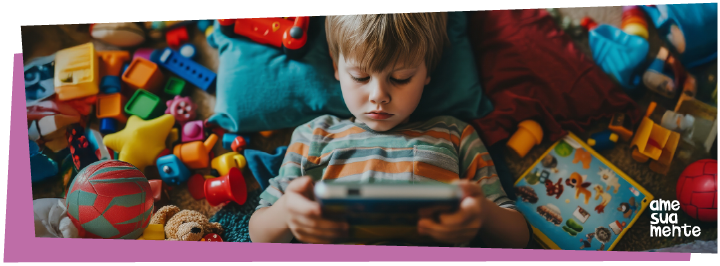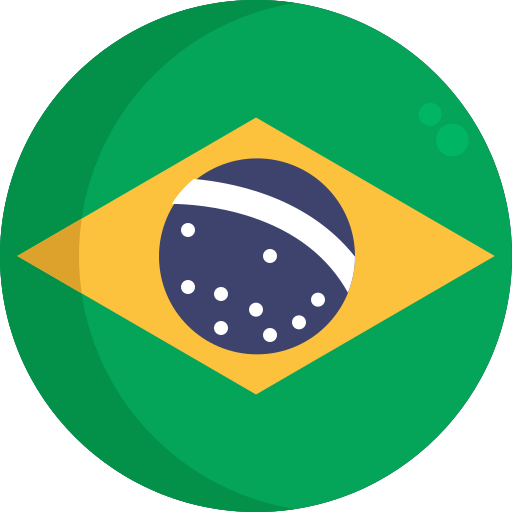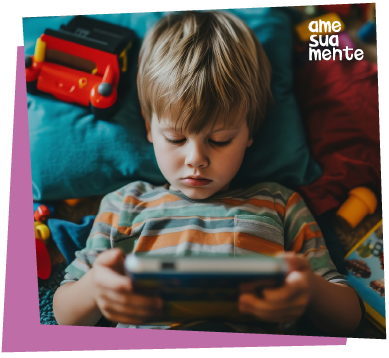
Technology has revolutionized the way we perform most of our daily activities. Real-time connectivity has exponentially expanded human knowledge and potential, with new possibilities continuously emerging. However, technology has evolved much faster than our minds can keep up with, exerting a major impact on mental health.
“It is important to recognize that the overload of information in modern life has negatively affected mental health, causing feelings of mental fatigue, reduced concentration and memory, as well as increased stress and anxiety. Excessive exposure to news and opinions generates ever-increasing demands and expectations – often unrealistic – and can aggravate symptoms of anxiety and depression,” says Ana Carolina D’Agostini – psychologist and Pedagogical Content Development consultant at the Ame sua Mente Institute.
There are numerous signs and substantial evidence showing the influence of a hyperconnected life on mental health, interpersonal relationships, and productivity, to name just a few examples. Therefore, it is crucial to become aware of harmful behaviors that have become automatic due to this hyperconnected lifestyle. It is possible to combat and eliminate these behaviors and conditioning by understanding how they are formed and finding ways to free ourselves from those that do not serve our well-being. Read our article on the subject for more information.
The Impact of Screen Use on the Development and Mental Health of Children and Adolescents
The benefits offered by the Internet and apps are limited for teenagers and nonexistent for children. For younger people, the harmful effects of screen use predominate, and a change in attitude requires extra attention. The negative impact on the development of cognitive, socio-emotional, and learning skills can have lasting effects throughout life.
During childhood and adolescence, the prefrontal cortex, one of the most complex areas of the brain, is still developing. This system is responsible for logical reasoning, decision-making, planning, attention, and social behavior. At this stage of life, the brain’s executive functions are particularly vulnerable to external factors, such as excessive screen exposure.
Urgent action from parents and caregivers is needed, and the reasons go beyond any resistance they may encounter. Social psychologist and researcher Jonathan Haidt, author of the bestselling “The Anxious Generation,” advocates for a collective movement to address this issue. He emphasizes the need for society as a whole to spread awareness about the impact of screen use and to raise consciousness among each other, ultimately changing common behaviors related to the use of electronic gadgets.
In his book, Haidt highlights “the four fundamental harms” affecting modern childhood: sleep deprivation, social deprivation, attention fragmentation, and addiction. Based on his extensive research, he also proposes four initiatives to combat these issues:
Four Rules to Combat the Impact of Screen Use on the Mental Health of Children and Adolescents:
- No smartphones for children until high school
- No social media for children until the age of 16
- No phones in schools
- More opportunities for independent, real-world play
Recently approved, the federal law prohibiting the use of cell phones in schools marks a significant step in this direction, putting into practice one of the rules proposed by Haidt. It creates an environment where families, schools, and society can work together to combat the excessive use of mobile devices. This move will help restore social interactions, free time, attention span, and socio-emotional skills in schools. The future benefits will outweigh any resistance we may face in creating a change in habits and lifestyle that ensures healthier development.
Learn more about the symptoms of this addiction in an interview with psychiatrist Rodrigo Bressan, president of the Ame Sua Mente Institute, for Jornal da Band. Whenever you notice signs of mental distress, seek professional help. In the “Need help with mental health?” section on this website, we provide information on psychosocial care services available across the country.
Share and be part of this change #amesuamente










